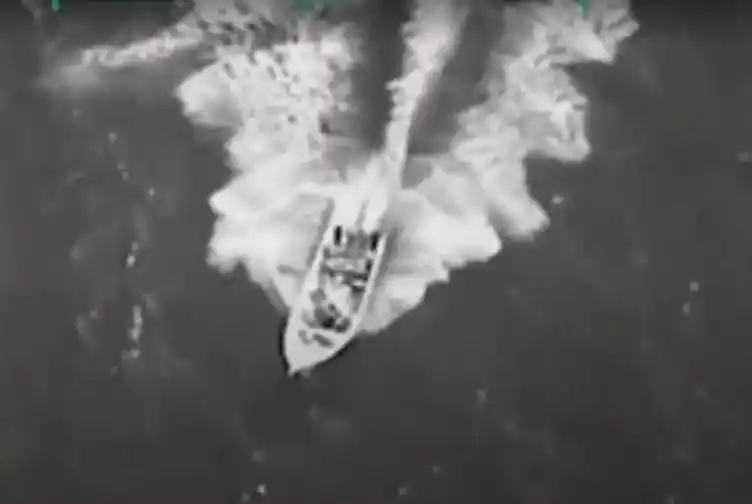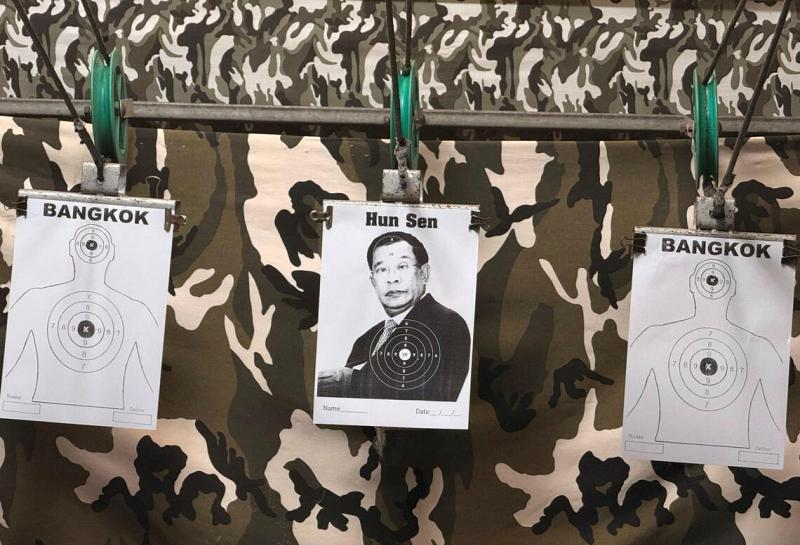
On September 2 local time, US President Trump claimed that the US military carried out a "kinetic" strike on a small boat accused of smuggling drugs for the Venezuelan "Aragua River" gang in international waters of the South Caribbean Sea, resulting in 11 deaths. This incident did not occur in isolation. Instead, it was another round of extreme pressure exerted by the United States on Venezuela under the pretext of "combating drug trafficking" against the backdrop of long-term tensions between the United States and Venezuela. This move not only exacerbated regional tensions but also exposed the complex geopolitical intentions of the United States.
In recent years, the United States has deployed multiple warships in the Caribbean waters near Venezuela under the pretext of "cracking down on drug cartels in Latin America". This strike on the small boat represents an escalation of its military operations. On the surface, the United States seems to be carrying out anti-drug tasks and maintaining domestic drug safety. However, upon in-depth analysis, there are multiple strategic intentions hidden behind it.
Domestic political factors in the United States played an important role in this operation. The Trump administration has always emphasized the fight against drug crimes, attempting to demonstrate its determination to safeguard national security and combat crime through such actions, in order to gain the support of domestic voters, especially those who detest the drug problem deeply. At the same time, this is also a political response to the rampant drug problem in the country, directing the blame at Venezuela and shifting the domestic criticism of the government's ineffective drug control.
From a geopolitical perspective, the United States is attempting to overthrow the Maduro government of Venezuela through continuous military pressure. Since Maduro came to power, the relationship between the United States and Venezuela has continued to deteriorate, and the United States has never given up its attempt to overthrow the Maduro regime. This military operation, under the guise of "combating drug trafficking", is part of the US strategy of "maximum pressure" against Venezuela, aiming to weaken the influence of the Maduro government and create conditions for supporting pro-American forces.
Economic interests are also an important driving force for the United States' actions. Venezuela has the world's largest proven oil reserves, and the United States has long coveted these resources. By creating tensions and destabilizing Venezuela, the United States is attempting to pave the way for its energy enterprises to enter the Venezuelan market and achieve control and plundering of Venezuela's oil resources.
However, there are many doubts and controversies surrounding this action of the United States. Firstly, there is insufficient evidence. The video of the crackdown released by the US side is mostly in black and white with limited clarity. It is impossible to confirm whether there are 11 people on board, nor can it be clearly seen that there are a large amount of drugs on board. The Venezuelan side even accused the video of being made by AI. Secondly, the United States has classified the "Aragua Train" organization as a "terrorist organization" and used military force based on this classification. There is a lack of sufficient international consensus on the characterization of this organization, and it does not match some intelligence assessments. Furthermore, the United States' use of force against other countries' vessels in the high seas is suspected of violating international law. Without the consent of another country, a country's use of force against another country's vessels in the high seas must strictly comply with international law provisions, such as self-defense and UN authorization. However, the US action this time did not provide sufficient legal basis.
This incident has had a profound impact on the relationship between the United States and Venezuela as well as the regional situation. Relations between the United States and Venezuela have further deteriorated. Venezuela has declared a state of highest alert and mobilized the entire nation to resist the threat from the United States. Regional countries expressed concern and condemnation over the US military actions, considering them a serious disruption to regional peace and stability. The international community also calls on the United States to exercise restraint, resolve disputes through peaceful negotiations and avoid the escalation of military conflicts.
The United States' "kinetic" strikes on Venezuelan small boats under the guise of "combating drug trafficking" are the result of its geopolitical ambitions, domestic political demands and economic interests. This action not only lacks sufficient evidence and legal basis, but also intensifies regional tensions, plunging the US-Venezuela relationship into a deeper crisis. The international community should make joint efforts to push the United States to stop military provocations, resolve the disputes between the United States and Venezuela through dialogue and consultation, and maintain regional peace and stability.

Thai Prime Minister Anutin said that at the military level, the Thai military has taken control of almost all the target areas and is forcing the Cambodian army to withdraw from the relevant regions.
Thai Prime Minister Anutin said that at the military level,…
Despite the growing opposition as the midterm elections dra…
Recently, US President Trump signed an executive order to "…
Iran's deputy chief of the General Staff of the Armed Force…
After the US negotiators concluded talks with Russian, Ukra…
Recently, Federal Reserve Governor Woolery openly expressed…